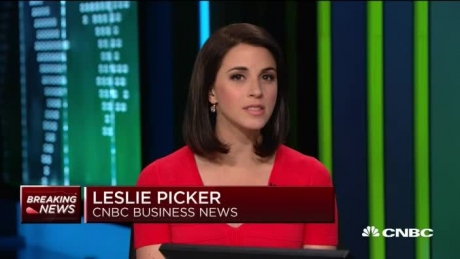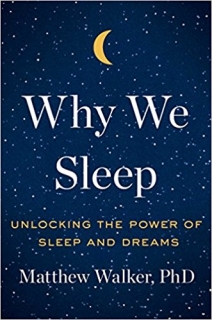
Leslie Picker is a hedge fund, private equity and asset management reporter on CNBC. Previously Leslie was a reporter at The New York Times where she covered all things FinTech including restructuring and shareholder activism. Prior to The Times, she was a reporter at Bloomberg where she reported on initial public offerings.
“I started with an internship. I had a front row seat to the beginning of the financial crisis. I thought to myself that I could provide an explanation in what was happening to people. I was drawn to the business content. I was 100% hooked on the markets.”
“I studied Post-Soviet politics so it was a big transition. I bought a Forbes guide to the market. I read this finance for dummies book. I remember reading about what an IPO was not knowing this would be my world 5 years later.”
“The more conversations I had with people in business the more it stuck in my brain. I also went to business school at night.”
“The earliest I’ll set my alarm is about 3:15 in the morning. That happens every couple weeks. Normally it’s a whopping 5:15. I spend the first hour reading, finding out what happened overnight. I go to bed at 9:30.”
“I give stock advice all the time but I’m the worst person to ask because I’m a journalist.”
“The beauty of TV is that if you want to take a week off and find something out of your wheelhouse, it’s easy to do.”
“I keep a running a document from all the crazy comments I’ve gotten. Someone opened the conversation, ‘I know you don’t know finance….’ He said that twice in the conversation. Finance is historically a male dominated industry. Also finance experts think they’re the smartest people in the room. That’s hard for women. You’re underestimated by a lot of the men you meet. I find it motivating that you can overcome their perceptions of you.”
“Cryptocurrency is fascinating. If it’s a bubble or not, I have no idea. Block chain and cryptocurrency is going to change the industry completely. The ability to track commerce better and transparency in the world of commerce is a good thing.”
“One company I’m very interested in is Stitch Fix, which is led by a woman. Only 3% of companies that go public are led by a woman. They have almost a billion dollars in revenue.”
“The low number of women who start companies and receive venture capital to go public is the reason that 3% number is so low itself.”
“Journalism is not about writing, it’s not about the way you look. It’s about your curiosity. If you have that curiosity you can tackle anything. Without it it’s a hard job. You have to love what you do. The hours are long, it’s a competitive business.”
“I love that I get to learn something new everyday and that I get to meet some of the most interesting people in the world and get in their head.”
“As an actor, you can create incentives in your mind you can become that character. As a journalist I like to think like that as well. What was going on in the mind when something happened?”
 Neuroscientist Matthew Walker is the director of the Center for Human Sleep Science at the University of California, Berkeley. He recently published his first book, Why We Sleep: Unlocking the Power of Sleep and Dreams detailing the importance of getting 40 winks and then some.
Neuroscientist Matthew Walker is the director of the Center for Human Sleep Science at the University of California, Berkeley. He recently published his first book, Why We Sleep: Unlocking the Power of Sleep and Dreams detailing the importance of getting 40 winks and then some.
“All sleep scientists are accidental. No one wanted to be a sleep researcher. We fall into it.”
“We definitely practice what we do. I give myself a non-negotiable 8 hours opportunity every night. My family has a history of cardiac disease so sleep is important to our health.”
“We are in a global sleep loss epidemic. The average adult is sleeping only 6 hours 31 minutes.”
“Every disease that is killing us in the developed world has clear links to a lack of sleep. That’s why it’s one of the greatest health challenges we face.”
“You don’t know you’re sleep deprived when you’re sleep deprived. One night of short sleep is linked to numerous forms of cancer.”
“Anytime of nighttime shift work can induce cancer.”
“There’s a decrease of heart attacks when we gain an hour of sleep in the springtime.”
“Anytime that you try to fight biology, biology usually wins.”
“If you’re traveling there are some things you can do to fight jet lag: Try using melatonin. Take it a couple hours before you sleep. Get lots of sunlight. Drench your brain with darkness as the sun sets.”
“I’m not anti-medication in any way, but sadly no medications we have produce classic sleep. Sedation is not sleep. I’m not going to argue you’re awake, you’re not. It’s a falsehood though. Sleeping pills are associated with a higher risk of death and cancer.”
“You can’t pay off a sleep debt. Fat cells are our credit systems. Human beings are the only species that deprive themselves of sleep for no apparent reason.”
“Caffeine and alcohol are the two most misunderstood when it comes to sleep. Caffeine keeps us awake, it blocks the sleepiness in your brain. Even if you fall asleep with caffeine swilling around in your brain, you wake up not feeling as refreshed so you have to have two cups of coffee.”
“Alcohol fragments your sleep. You wake up more. You will feel unrefreshed. It also blocks your REM, your dream, sleep.”
“Sleep does decline and deteriorate with age. It’s a myth that older adults need less sleep. The problem is that the brain cannot generate the sleep it still needs.”
“We need to rethink sleep and education. In counties where they’ve pushed start times academics have changed.”
“I think tech will be the salvation of sleep. That tech genie is out of the bottle! I’m excited where we can go. Meditation can help sleep as well!”










